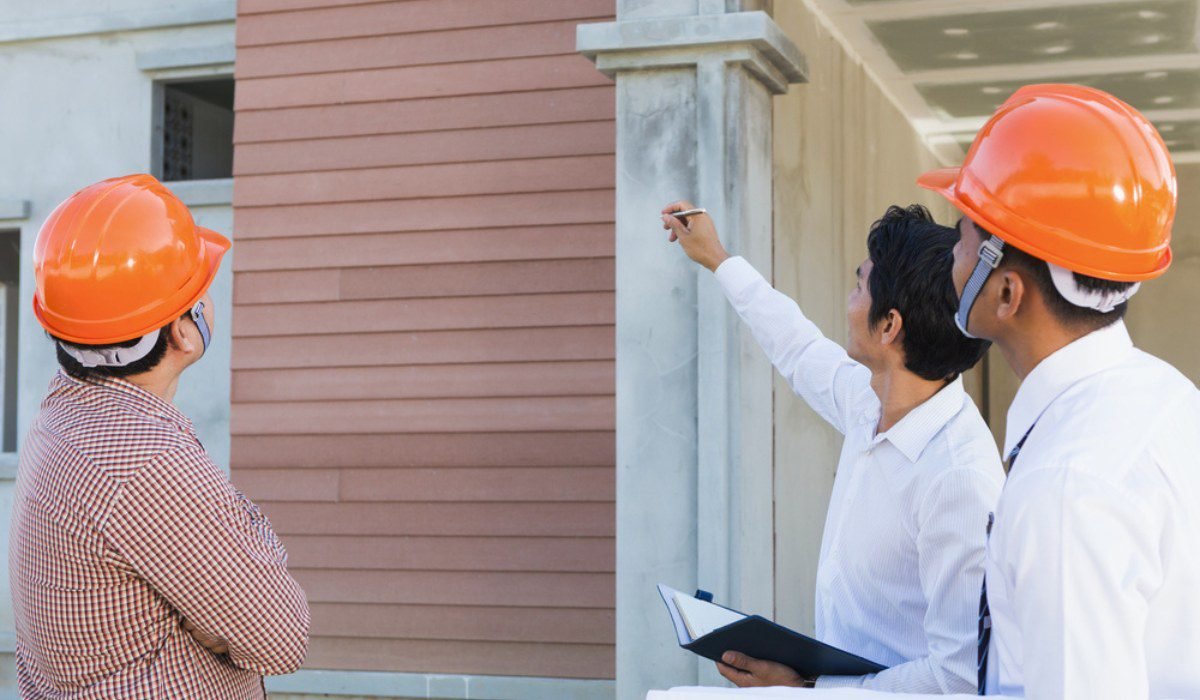Construction quality and structural safety of a property are among the main concerns for many property buyers. A Structural Stability Certificate is one of the important property-related documents required during the purchase, sale and renovation of properties. It proves a building’s structural stability and certifies that the structure is safe for habitation.
Let’s understand structural load in construction
What is Structural Stability Certificate?
A Structural Stability Certificate is a document that certifies the stability of a building’s structure and establishes that the building’s structural elements are stable and safe for occupation. A qualified structural engineer or architect issues the certificate after a structural assessment to evaluate the building’s load-bearing capacity, potential structural weaknesses and overall stability.
Structural Stability Certificate: Purpose and benefits
- Ensures building safety: Getting a Structural Stability Certificate ensures safety. Assessing a building’s structural stability helps identify potential risks or hazards and address them before they become a threat to occupants.
- Ensure the building does not violate legal regulations: In many jurisdictions, a Structure Stability Certificate is a legal requirement for buildings of a certain size or age. With this certificate, building owners can ensure that they are complying with local regulations and avoid potential legal issues.
- Enhances resale value: A Structure Stability Certificate increases the value to a property as it assures potential buyers that the property has been assessed for structural stability and is safe and well-maintained.
What does Structural Stability Certificate contain?
The Structural Stability Certificate includes details such as the building’s age, location and construction materials. It mentions the structural assessment findings and recommendations for necessary repairs and maintenance, if any.
Format of a Structural Stability Certificate
| Structural Stability Certificate
This is to certify that the building of …………….. (owner’s name) existing over Khasra no. ………. At ……………. (address) has been assessed as per the Indian Standards Codes for general structural safety. The structure conforms to safety, stability and reliability. The above Stability Certificate will not be valid in case of the following:
1. Actual loads on the structure exceed the design loads mentioned in PO. 2. Any alterations and/or additions are made in the structure without written consent of the consultant.
Name:……….. (Civil Engineer) Registration No………….. Date:………… Address………… |
How to get Structural Stability Certificate?
To get a Structural Stability Certificate, the building owner should hire a qualified structural engineer or architect to carry out a structural assessment. This will involve a thorough evaluation of the building’s foundation, walls, beams, columns, roof and other structural components.
The engineer or architect creates a detailed report of the assessment findings. Details such as building’s age, construction materials and load-bearing capacity are mentioned in the report. It also mentions any repairs or maintenance work necessary for maintaining the building’s structural stability. After the report is prepared, the engineer or architect issues the structural stability certificate.
Documents required to get Structural Stability Certificate
- Building completion certificate
- Occupancy certificate
- Building plans and structural drawings
- Building inspection report
- Soil test report
- Architect’s or engineer’s certificate
Cost of obtaining a Structural Stability Certificate
The cost of getting a Structural Stability Certificate will depend on factors such as the building’s size, location and complexity. It will also be influenced by other factors, such as the qualifications and experience of the engineer or architect hired to perform the structural assessment.
One should note that the cost of getting a structural stability certificate is nominal, especially when compared to the potential expenses that one may incur due to property damage, injuries, etc., caused by structural failures.
Structural Stability Certificate for existing buildings
One should hire a structural engineer or a licensed architect for an existing building to obtain a Structural Stability Certificate. The professional will inspect the building, assess its structural integrity and prepare a detailed report based on their findings. The report may include recommendations for any repairs or improvements to maintain the building’s structural stability. It should also mention calculations and drawings that demonstrate the building’s structural soundness.
How does it differ from a new construction certificate?
The structural stability certificate format for an existing building differs from that of a new construction certificate, as the existing structure’s condition is mentioned in the document.
A new construction certificate certifies that a building has been constructed based on the approved plans and complies with the building codes and safety standards. The document will have details about the building’s existing structure, any recommendations by the engineer or architect for repairs or improvements to ensure the structural stability of the property.
On the other hand, a Structural Stability Certificate for an existing building assesses the structure’s current condition and identifies risks to its structural integrity due to any deficiencies.
Building Stability Certificate vs Structural Stability Certificate
A Building Stability Certificate and Structural Stability Certificate are documents related to a building’s stability. However, there is a clear difference between the two. A Building Stability Certificate certifies that a building has been developed as per the approved plans and that it fulfils all the necessary building codes and regulations. On the other hand, a Structural Stability Certificate verifies that a building’s structure is sound and complies with the required safety standards. Both these certificates must be obtained when trying to establish that a building is safe and meets all the requirements.
Structural Stability Certificate: Requirement as per RERA
A Structure Stability Certificate is an important document issued by a competent professional certifying that the structure complies with the relevant Indian codes and standards, such as Bureau of Indian Standards, National Building Code of India, etc. It is an essential document for developers registering with the Real Estate Regulatory Authority (RERA) in some states. For example, as per Rule 3B (1) of APRERA Rules, 2017, it is mandatory for the promoter to file a Structural Stability Certificate duly issued by a Certified Structural Engineer while filing an application for registering the project in AP RERA.
Housing.com News Viewpoint
A structural stability certificate may be required in various scenarios, such as property sale or purchase or when making structural alterations. One should be aware of the local regulations in their area and must obtain the certificate from an experienced professional (engineer or architect). Obtaining this certificate is a legal requirement and helps one establish that the property is safe for the occupants, thus preventing any legal hassles.
FAQs
Who can issue a Structural Stability Certificate?
A qualified and experienced structural engineer or architect can issue the Structural Stability Certificate after inspecting the building designed by them.
What is the validity of the Structural Stability Certificate?
The validity of a Structural Stability Certificate varies based on the issuing authority and local regulations in the area where the building is located. The certificate should be renewed periodically to ensure that the building remains structurally sound.
How long does it take to obtain a Structural Stability Certificate?
The time taken to obtain a Structural Stability Certificate will depend on the size of the building, the complexity of the inspection and assessment and the jurisdiction under which it is located. To find out the estimated time, consult a licensed structural engineer or architect.
How often should you renew a Structural Stability Certificate for an existing building?
The frequency of renewal of a Structural Stability Certificate for an existing building varies based on the jurisdiction under which the property is located. The certificate must be renewed every few years or when significant changes to the structure are made.
What happens if a building does not meet safety and stability standards after the inspection?
If the building does not comply with the safety and stability standards after the inspection, the licensed structural engineer or architect will give recommendations for repairs or improvements to the structure to make it comply with the standards.
| Got any questions or point of view on our article? We would love to hear from you. Write to our Editor-in-Chief Jhumur Ghosh at [email protected] |
Harini is a content management professional with over 12 years of experience. She has contributed articles for various domains, including real estate, finance, health and travel insurance and e-governance. She has in-depth experience in writing well-researched articles on property trends, infrastructure, taxation, real estate projects and related topics. A Bachelor of Science with Honours in Physics, Harini prefers reading motivational books and keeping abreast of the latest developments in the real estate sector.











